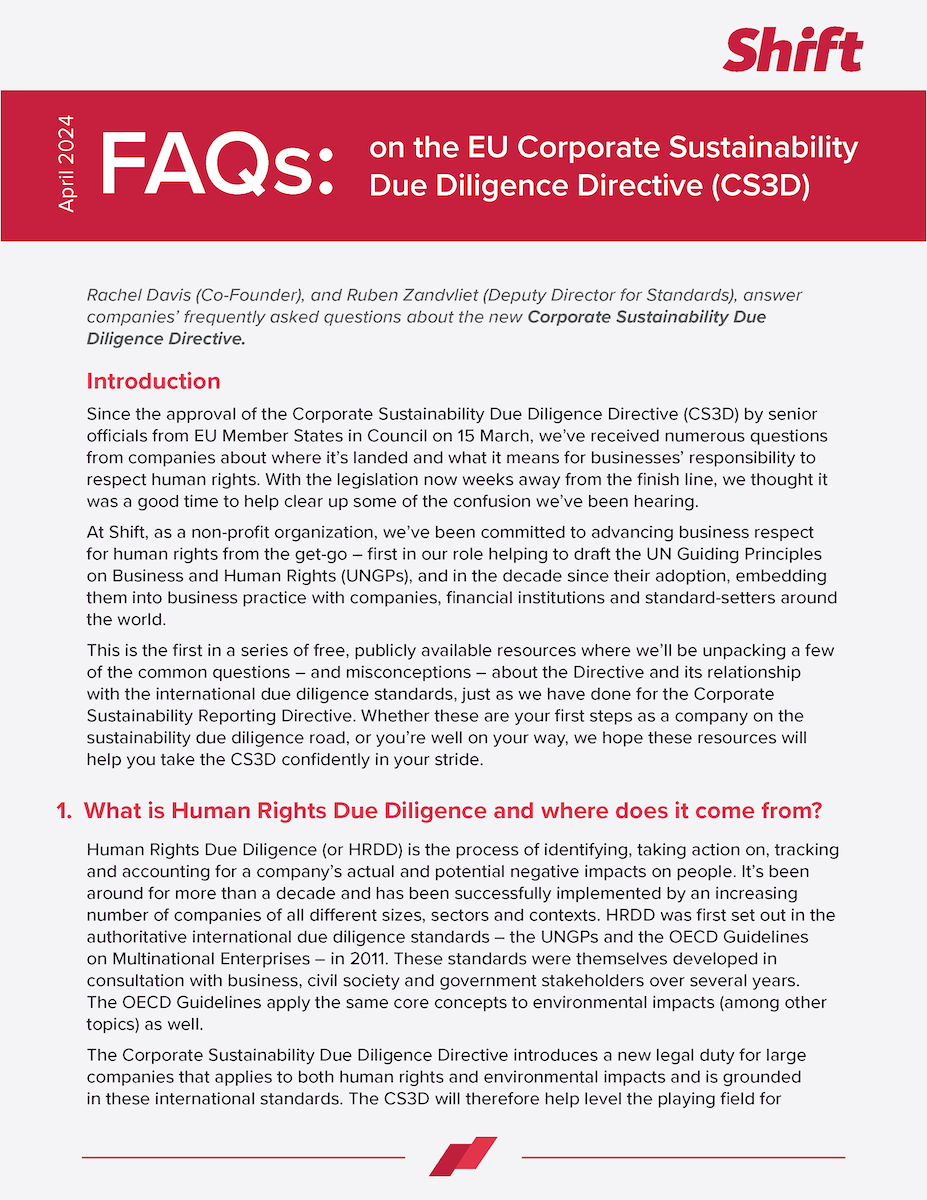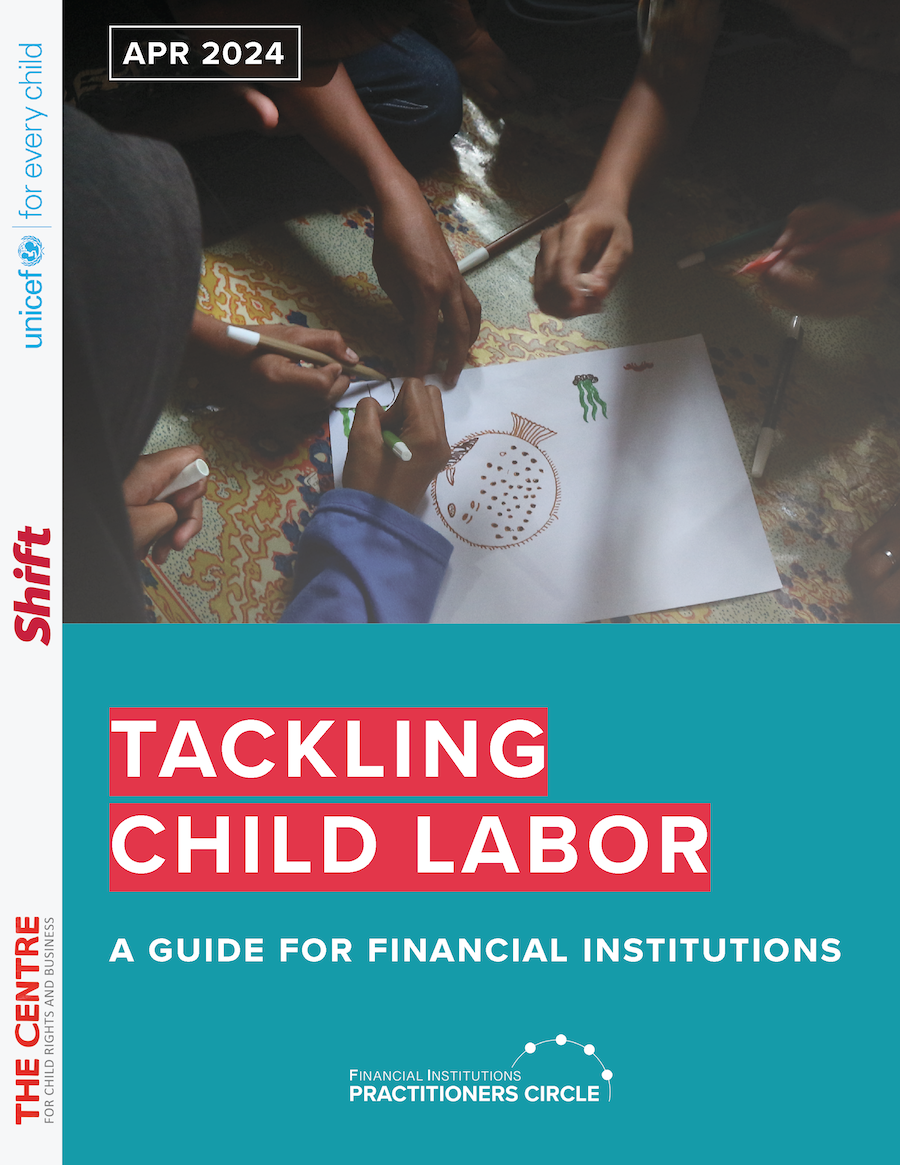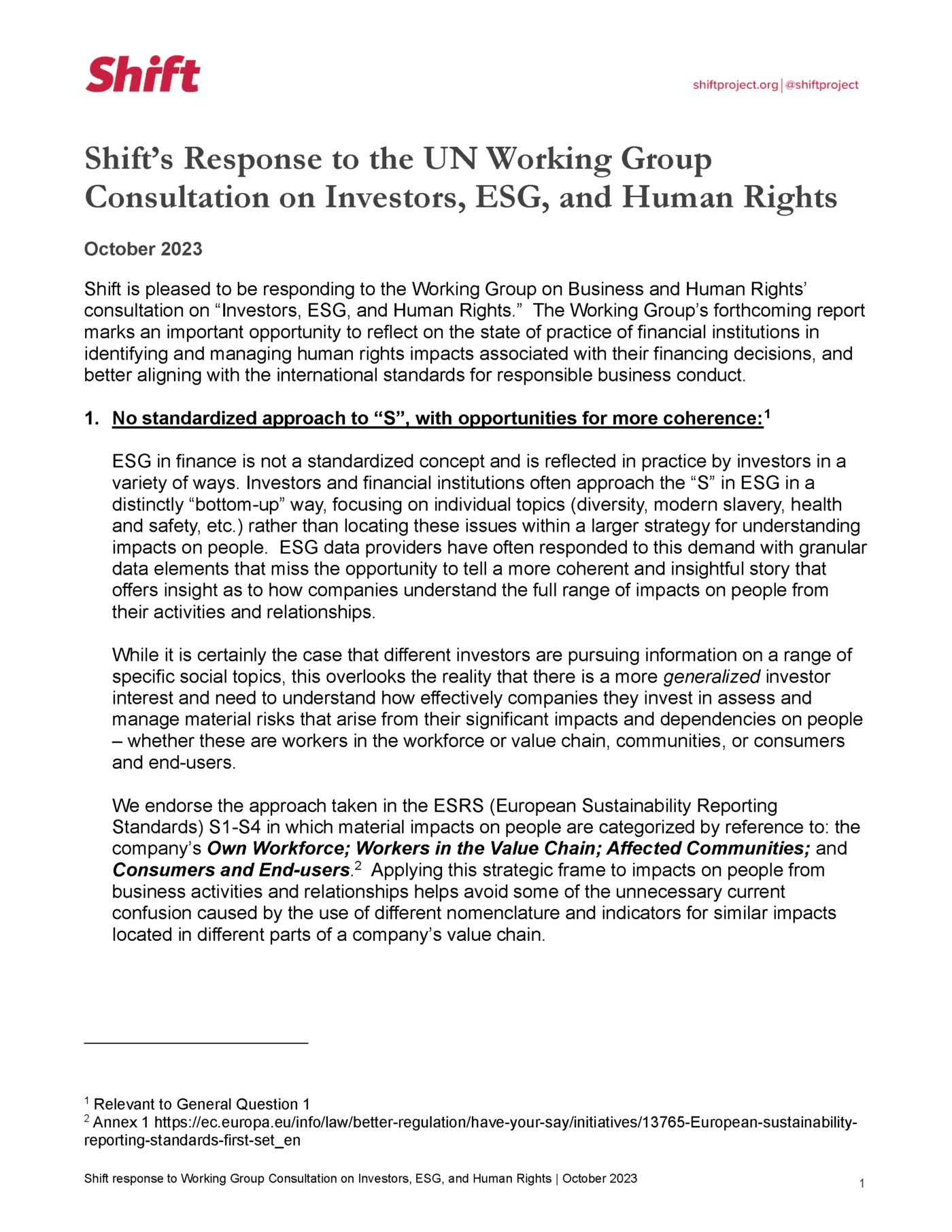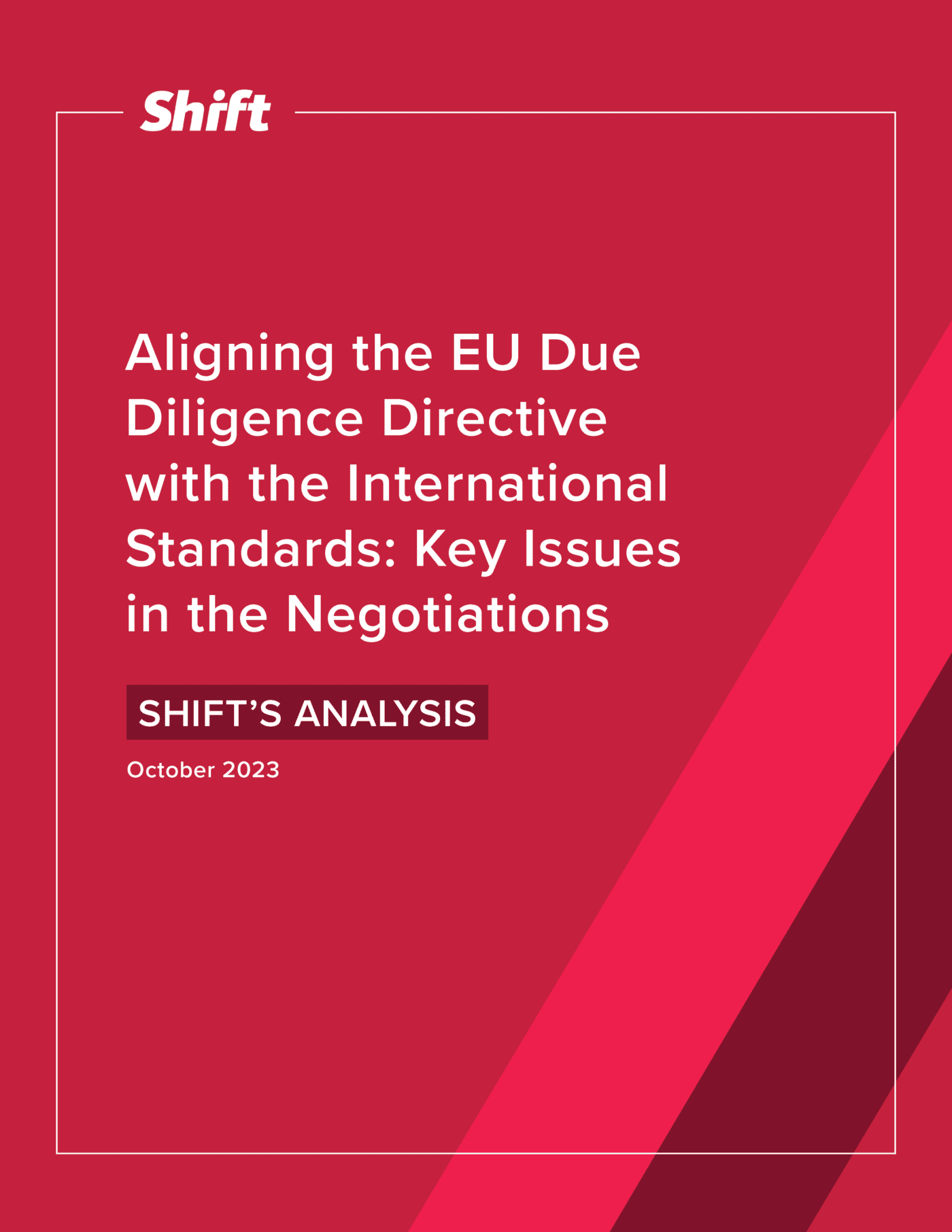The objective of human rights due diligence is to prevent and mitigate potential impacts on people’s human rights. After identifying human rights risks, companies need to take action to tackle them. Prevention and mitigation efforts are forward looking – they are focused on attempting to stop potential impacts before they happen, or to reduce their severity as much as possible. Where this involves impacts caused by third parties, a company’s leverage over those third parties becomes crucial. Leverage means the ability to change another’s behavior to try to prevent impacts from occurring. Where impacts do occur despite efforts to prevent them, then the need for remedy comes into the picture. Click on Remediate to learn more about remedy.
Learn more: see all our resource library listings below, as well as specific sections from these comprehensive resources:
- Guiding Principles 17, 19, 23 and 24 and their commentary
- UNGP Reporting Framework questions C4, C4.1, C4.2 and C4.3 and their implementation guidance
- The Corporate Responsibility to Respect Human Rights: An Interpretive Guide: p.46
- Doing Business With Respect for Human Rights: Chapter 3.4
- Using Leverage in Business Relationships to Reduce Human Rights Risks
- How to Do Business With Respect for Children’s Right to Be Free From Child Labour: p.37
- Guidance for Companies on Respecting the Human Rights to Water and Sanitation: p.61
- European Commission Sector Guides on Implementing the Guiding Principles: employment agencies: p.45; ICT: p.42; oil and gas: p.41



